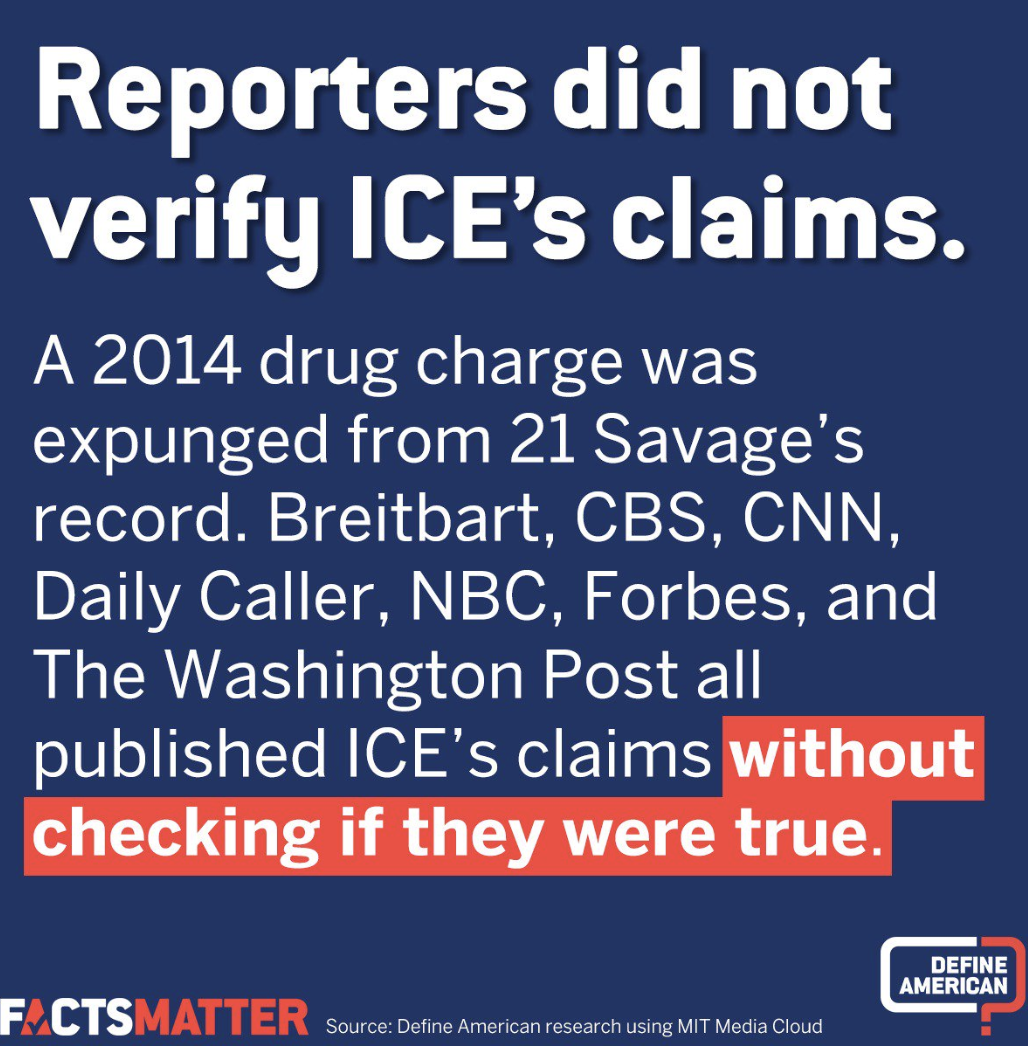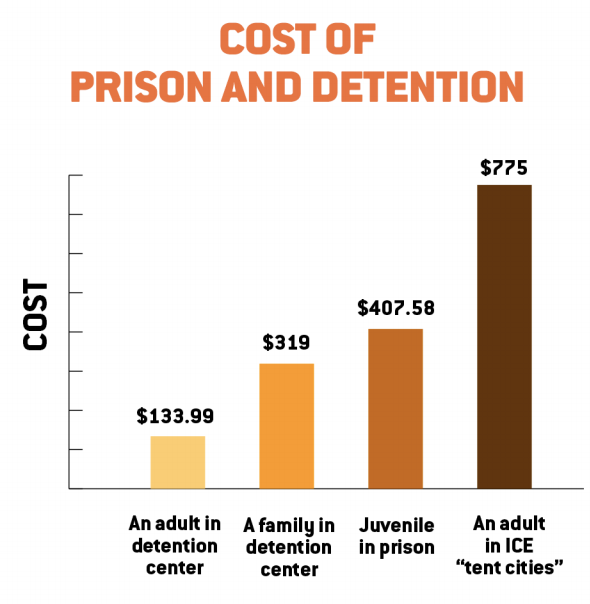

21 Savage performs onstage during Bud Light Super Bowl Music Fest / EA SPORTS BOWL at State Farm Arena on January 31, 2019 in Atlanta, Georgia. (Photo by Kevin Winter/Getty Images for Bud Light Super Bowl Music Fest / EA SPORTS BOWL)
ICE has detained She’yaa Bin Abraham-Joseph, the well-known Atlanta-based recording artist and songwriter also known as “21 Savage.” ICE has refused to release him on bond of any amount, despite that he has a pending U Visa application (as the victim of crime) with USCIS and has relief from removal available to him.
21 Savage was meant to perform this weekend at the Grammys. Instead, he is in detention. His situation underscores the racial injustice that is endemic to the U.S. of mass detention and mass incarceration systems. Below please find six questions you should be asking before the Grammys on Sunday:
Question 1: Why is 21 Savage still in detention?
-
21 Savage has no criminal record, was not detained for committing a crime. Yet he remains in detention when he should be preparing to sing at the Grammys this weekend. Why is that?
“In our undocumented state, we are also Black. That in itself in this country is labeled as being ‘criminal’.” – @ToboreOweh of @UndocuBlack@Blklivesmatter @BAJItweet @ColorOfChange#Free21Savage – https://t.co/C6ivGz9h1f pic.twitter.com/3rrlvwt2Bb
— Define American ?? (@DefineAmerican) February 7, 2019
Question 2: Is ICE’s attack on 21 Savage’s “public persona” in the media typical for how it treats other immigrants they arrest?
-
When 21 Savage was initially detained ICE released a statement to media outlets attacking his persona.
-
Why did they send out such a statement? Do they do that for every person they detain? And why did many reporters working on breaking news coverage not verify ICE’s comments?


Question 3: Did 21 Savage Speaking Out About Children Being Detained At The Border Precipitate ICE Detaining Him?
-
21 Savage added lyrics about children being detained at the border to his song “a lot” at a recent performance. Shortly thereafter he was detained. Are these things connected?
Question 4: How much did criminalizing narratives in the media contribute to 21 Savage being detained?
-
Immigrants are disproportionately associated with crime and incarceration on TV. Could this have had an influence in how the media initially reported on 21 Savage’s detention?
-
On TV, one-third (34%) of immigrant characters were associated with a crime.
-
2018 studies by the CATO Institute and the Marshall Project both reiterate what several other studies have found: both undocumented populations and immigrants as a whole commit less crime than native-born.
Questions 5: How can someone with a pending application for a U Visa be apprehended?


-
An under-reported part of this story is how 21 Savage had applied for a U Visa. His U visa petition has been pending since 2017.
-
The U visa he has applied for is for victims of crime, after his lawyers said he survived a shooting in 2013. Is ICE now arresting people who are survivors of violence (often domestic violence) simply because they applied for legal status?
-
If he has been waiting for his visa to be applied why is he being put into deportation proceedings?
Question 6: Do You Think There Is A Connection Between Mass Incarceration and Mass Detention?
-
Immigration detention is incarceration The U.S. has the largest imprisoned population in the world, in terms of both of citizens in prison (2,172,800) and non-citizens in immigrant detention centers (39,322), which creates roughly $80 billion in revenue annually.
-
Both citizens of color in the criminal justice system and non-citizens in immigrant detention are subjected to inhumane living conditions, unethical labor practices, and a cycle of punishment for poverty.
-
Although Black immigrants comprise just 5.4% of the unauthorized population in the U.S., they make up 10.6% of all immigrants in removal proceedings between 2003 and 2015.
***
Kristian Ramos is Communications Director for Define American.
About Define American
Define American is the nation’s leading nonprofit media organization that uses the power of story to transcend politics and shift the conversation about immigrants, identity, and citizenship in a changing America. It was founded in 2011 by Pulitzer Prize-winning journalist and Emmy-nominated filmmaker Jose Antonio Vargas. For more information, visit defineamerican.com.




